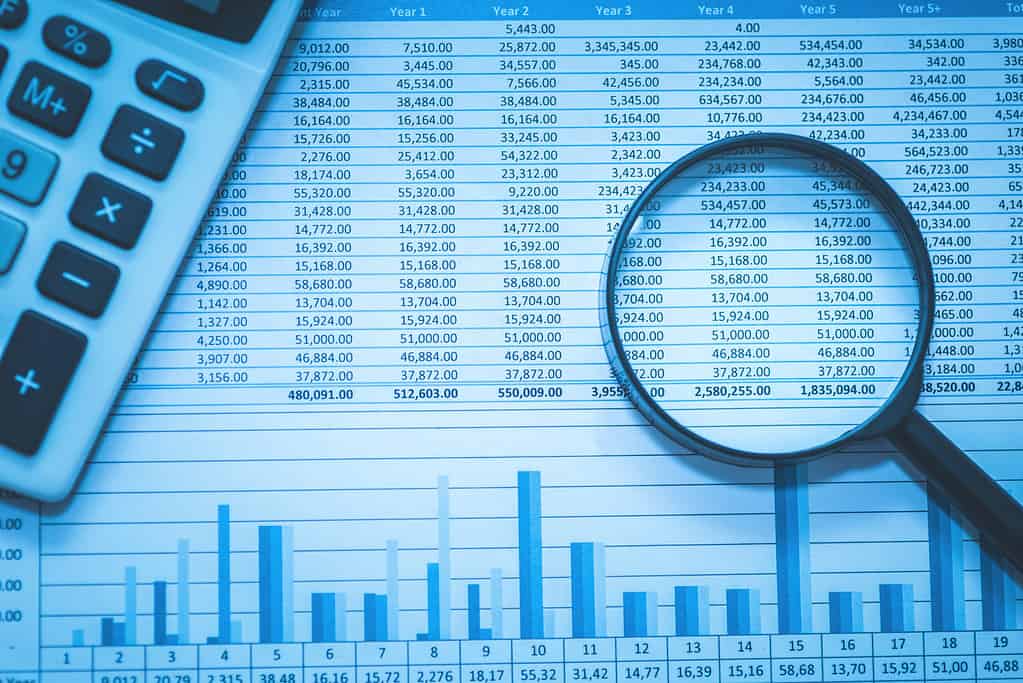Being a CPA or certified public accountant in Michigan is an appealing job for those who are good at math, like working with numbers, and can work well under pressure. But unlike some career choices, becoming a CPA involves more than just learning about a career and jumping in enthusiastically. To become a CPA in Michigan, a specific path that includes college coursework, practical experience, licensure exams, and even ongoing educational courses must be followed to attain your CPA certification. Commonly referred to as the “3 E’s,” candidates must successfully complete the necessary Education, Examinations, and Experience before becoming a licensed CPA in Michigan. If you want to learn more about how to become a CPA in Michigan, keep reading for a comprehensive guide on what you need to do to pursue this career path.

Does Becoming Licensed Really Matter?
Having the title next to your name is an exciting career step for many pursuing becoming an accountant. Being an accountant is similar to earning your certificate of public accountancy, but following all the steps to become licensed by your state allows you to earn significantly more, with an average yearly salary of $90,839, according to Indeed.com. Those who have become licensed are prepared to do more complex work than a non-certified accountant would do. Sometimes non-licensed accountants even work as support professionals to those who have been licensed. Let’s take a look at what it takes to earn your license in the state of Michigan.
Here are the Steps to Become a CPA in X:
- Getting Your CPA Education in Michigan.
- Taking the Uniform CPA Exam in Michigan.
- Gaining the Needed Experience in Michigan.
- Getting Your CPA License and Continuing Education in Michigan.
In order to become licensed by the Michigan State Board of Accountancy, or MSBA, applicants must show a high level of competency in the field by passing regulatory exams. In addition, applicants must have earned a directly related college degree and demonstrate related experience within the field. Once licensed, professionals must attend continuing education courses to learn about tax law changes and refresh their understanding of ethics as it relates to their profession.
What Educational Background is Needed to Become a CPA in Michigan?
Those pursuing this career will need to complete two basic educational requirements before seeking licensure in the state.
- Completing an undergraduate degree in accounting or in a closely related field that includes a heavy focus on accounting coursework.
- Earning a minimum of 150 college credit hours.
Since most college degrees only consist of 120 college credit hours, many students go on to earn their master’s degrees. This is an ideal way to take those extra 30 hours required for licensure while also being given the opportunity to participate in an internship during the advanced degree program. While a master’s degree is not necessary for candidates hoping to earn their license, some jobs do prefer candidates with an advanced degree or pay a higher salary to those who have completed the master’s program.
University Coursework for Future CPAs

All programs that support the eventual licensure in this field will require students to study a group of core classes for their major. In addition, students will be required to take business classes since someone in this profession works hand-in-hand with large and small corporations, and a good understanding of how business works is key to this partnership. Students can find whole degrees or individual courses available in on-campus and online formats.
A few of the common courses students take in order to prepare for a career in accounting are:
| Auditing | Beginner Accounting | Intermediate Accounting |
| Advanced Accounting | Business Ethics | Business Law |
| Economics | Financial Accounting | Principals of Management |
| Software and Information Systems | Strategic Thinking | Taxation |
To be considered for the licensing exam, candidates must have taken these courses at some point during their undergraduate or graduate degrees:
| Financial Accounting | Accounting Theory | Managerial Accounting |
| Cost Accounting | Accounting Systems and Controls | Taxation |
CPA Exams
In Michigan, once a student has either completed their master’s degree program or is within 30 days of completing their bachelor’s, they can register and take the Uniform CPA Examination. This exam is the four-part certification that all future accounting professionals will take to earn their licenses. Each assessment is taken separately, and each portion can be passed or failed. But to earn licensure, a candidate must pass all sections within an 18-month period based on the exams’ dates. Students can apply to take one or more of the four sections at a time, but applications to take the exam(s) include an academic preparedness review to make sure that the candidate meets all of the course and degree requirements before granting an exam date.
Auditing and Attestation (AUD)
The AUD exam was developed to assess a candidate’s questioning mind and professional skepticism, both key components to providing successful audits as a licensed professional. According to the NASBA, the AUD exam is comprised of four content areas.
- I – Ethics, General Principals, and Professional Responsibilities, 15-25%
- II – Developing a Planned Response and Risk Assessment, 20-30%
- III – Obtaining Evidence When Performing Further Procedures, 30–40%
- IV – Conclusion Formation and Reporting, 15-25%
Business Environment and Concepts (BEC)

The BEC exam also focuses on assessing whether a candidate is prepared to complete expected tasks as a CPA, including audits, financial reporting, tax preparation, and other review services. This exam covers five content areas.
- I – Corporate Governance, 17-27%
- II – Economic Concepts and Analysis, 17–27%
- III – Financial Management, 11-21%
- IV – Information Technology, 15-25%
- V – Operations Management, 15-25%
Financial Accounting and Reporting (FAR)
The FAR examination focuses on how well a candidate knows and can apply knowledge about the accounting and reporting frameworks that both public and private businesses, non-profits, and local, state, and governmental agencies require. The FAR exam is comprised of four content areas.
- I – Concept Framework, Standard-Setting, and Framework Reporting, 25-35%
- II – Select Financial Statement Accounts, 30-40%
- III – Select Transactions, 20-30%
- IV – State and Local Governments, 5-15%
Regulation (REG)
The final exam that candidates seeking their licensure must pass is the REG which assesses applicants on their knowledge of federal tax law, business law, and the ethics that govern them. The REG examination is made up of five content areas.
- I – Ethics and Tax Procedures, 10-20%
- II – Business Law, 10-20%
- III – Federal Taxation of Property Transactions, 12-22%
- IV – Federal Taxation of Individuals, 15-25%
- V – Federal Taxation of Entities, 28-38%
CPA Exam Study Tips
Preparing for licensure is a critical piece of becoming a CPA in Michigan. Many degree programs offer students exam preparation courses and guides, which are essential for many candidates. However, candidates often don’t realize that since their college coursework will prepare them for the exams, paying close attention to how they learn can often be the best preparation for the examinations. Some techniques that students can employ to make studying for the exams easier are:
- Take complete notes. Be thorough in your note-taking during lectures, instruction, and readings on every topic. Go back and organize your notes by category and cross-reference them by topic while they are still fresh in your mind to create a personalized content guide that you can use when preparing for your exams.
- Keep a notebook of everything you are instructed that will be on the exam. Many times, professors will tell you that what you are learning will specifically be assessed. Keeping track of this information can help you build a study guide for yourself and a checklist of what you need to master before attempting the examinations.
- Ask questions. Take advantage of your time with knowledgeable instructors to ask for clarification on subjects you don’t understand or expand on the content you don’t know enough about.
- Take practice tests. Use study guides, quiz yourself on the review questions, and take practice assessments to see your strengths and weaknesses. Then, use your results to concentrate your study efforts on areas you lack and strengthen your abilities in other content areas.
Do I Need Specific Experience to Become Licensed?

Unlike other degree programs that encourage or offer internships, pursuing licensure requires candidates to complete real-world experience before being considered for certification. The MSBA requires that candidates complete at least one year and at least 2,000 hours of experience in the field before being considered for licensing. This experience must be at least a year but at most five years, and it must be verified by someone already licensed as a CPA. Experience can be earned at four different types of institutions, including,
- Academia – This path must include teaching at least four academic semesters of teaching courses at least six credit hours per semester that are higher than elementary-level courses.
- Government.
- Industry.
- Private Practice.
What the Experience Must Include
The Michigan Board of Accountancy rules require a candidate’s experience to include at least one of 14 different competency or skill areas for the experience to qualify. These competencies include auditing financial statements, attestation, tax research, and representing a client before the IRS in an audit. At the end of the experience, the supervisor must complete an online Verification of Qualifying Experience with the Michigan Professional Licensing User System that will be used in the final step of gaining a license.
Licensure Requirements
- Applicants must be at least 18 years old.
- Applicants must be of good moral character.
- Applicants must meet the year and hours of experience requirements.
- Candidates must pass the Uniform examination.
- Applicants must have earned a bachelor’s degree in or a concentration in accounting after completing at least 150 hours of coursework.
Keeping Your License
Continuing education is required even after licensure is granted. Each year, 40 hours of Continuing Professional Education or CPE credits are required to maintain your license. In addition, two hours of Ethics Coursework must also be taken, one of which must be the approved Michigan Ethics course. Since tax and business laws are constantly changing, CPE credits ensure that licensed professionals are on top of any legal shifts affecting their work with clients.
Becoming a CPA in Michigan
The accounting field is an exciting career path for many people. Becoming a licensed CPA in Michigan is a fantastic way to increase your career’s financial outlook while working with more complex accounting tasks. Every year tax and business laws change, and licensed professionals that can work with businesses, non-profits, industries, or even governmental agencies are always in demand.
Related Resources
Online Accounting MBA Ranking
Online Bachelor’s in Accounting
Online Master’s in Accounting
